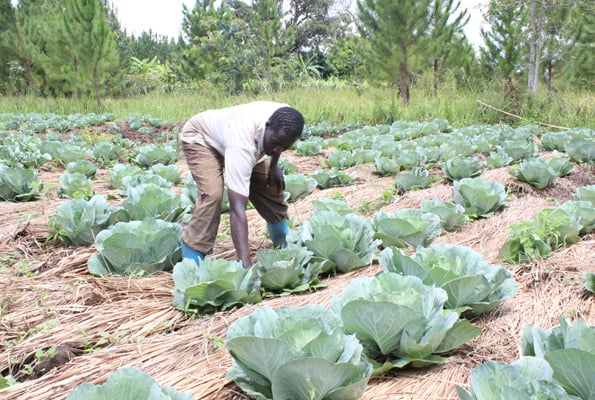Prime
The nexus between gender, land rights and climate change

Frances B.Odong
What you need to know:
...there cannot be climate justice without gender justice. Climate change action must address gender inequality.
Heavy downpours as well as unusually long, extreme and persistent droughts have been a common feature in Uganda today destroying properties, infrastructure and disrupting livelihoods of many.
All these scenarios speak to one issue -- Climate change which is one of the most challenging threats to sustainable development in the world today.
In Uganda, agriculture is the backbone of the economy, employing 70 percent of the population. The impacts of climate change are leading to greater instability in production in the agricultural sector.
Men and women are affected differently by climate change due to existing gender inequalities. It has been recognised that the effects of climate change are felt most acutely by those segments of the population that are vulnerable owing to their geographical location, gender, age, minority and disability, among others.
In patriarchal societies like Uganda, gender norms provide women with a primary role of caring for their families through provision of food, water, medicines, etc. Women rely on natural resources to play this care role. They are thus hardest hit by climate change as its impacts on these natural resources has increased the care burden on women and girls as they struggle to obtain daily supplies from the now scarce and unproductive natural resources. Gender and social norms also limit their opportunities to access information on climate change, forecasts and early warnings, training and climate change financial resources making them more vulnerable. Further still, climate change affects women’s livelihoods and feminises poverty as well as limits their opportunities to access social services exacerbating economic, social-cultural and ecological inequities.
Goal 13 of the 2030 Agenda for Sustainable Development calls for urgent action to combat climate change and its impacts. Governments are thus called to develop, strengthen and implement policies for the protection of the rights of people in vulnerable situations in response to climate change by among other actions, the inclusion of their rights, specific risks, needs and capabilities in climate action plans and other relevant policies or legislation. Additionally, Governments are called to provide information on climate change and disaster preparedness response and planning through all accessible means of communication as well as strengthen and implement policies aimed at promoting the meaningful participation and leadership of people in vulnerable situations in the design of policies, plans and mechanisms in climate-related decision-making and disaster risk reduction and management including for preparedness, contingency planning, early warning, evacuation planning, emergency relief efforts,etc.
However, there cannot be climate justice without gender justice. Climate change action must address gender inequality. Inclusive adaptation and mitigation efforts that promote participation of women, including older, grassroot and indigenous women and girls in climate action will minimise the adverse impact of climate change on present and future generations. Further still, provision of finances, technology transfer and capacity building for women is critical to enable them to map their risks and vulnerabilities.
Climate change is the living reality of women with two facets – on one hand women indeed are the most affected because of long standing issues of gender, and on the other hand, they are also active agents in addressing immediate and strategic solutions to climate justice. Land as a natural resource is at the centre of fighting climate change and as such, securing women’s land rights has become critical in the war against climate change.
Frances Birungi Odong is Executive Director- Uganda Community Based Association for Women and Children Welfare.




